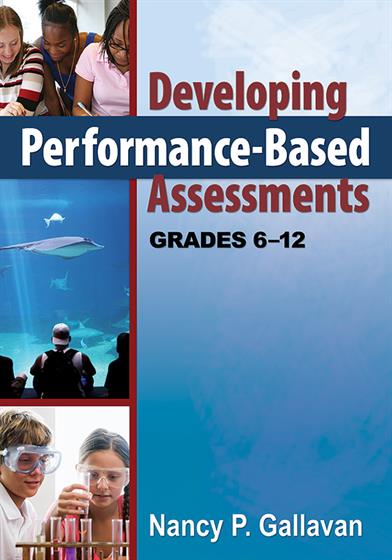Hands-on, Practical Guidance for Educators
From math,
literacy, science, equity, multilingual learners, and SEL, to assessment, school counseling,
and education leadership, our books are research-based and authored by experts
on topics most relevant to what educators are facing today.

Developing Performance-Based Assessments, Grades 6-12
Improve student achievement on daily assignments, unit assessments, and standardized tests!
This book clearly defines performance-based assessments (PBAs) and leads teachers and administrators through an assessment process that is fully integrated with the daily curriculum and that can produce significantly improved student performance. The author provides a template for recording assessment data, demonstrates how to create rubrics for teacher/student use, and offers standards-based examples featuring classroom teachers' insights. Readers will discover how to use PBAs to implement:
- Preassessments to collect baseline data
- Formative assessments that yield progress-monitoring data
- Summative assessments for gathering data that is easy-to-use
- Grade Level: 6-12
- ISBN: 9781412969819
- Published By: Corwin
- Year: 2008
- Page Count: 240
- Publication date: September 05, 2013
Review Copies
Review copies may be requested by individuals planning to purchase 10 or more copies for a team or considering a book for adoption in a higher ed course. Request review copy

